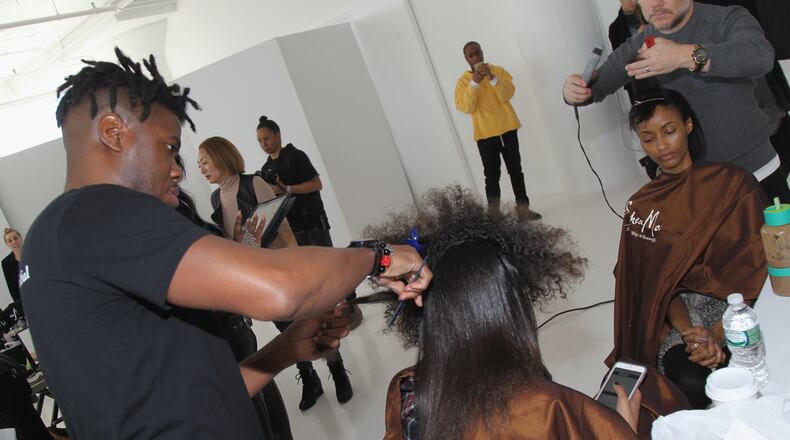Is a trip to the hair salon a regular occurrence for you? New research suggests you might want to think twice before dying or relaxing your hair, because both have been linked to an increased risk for breast cancer.
»RELATED: Study: Daily glass of wine or beer can increase breast cancer risk
Scientists at the University of Rutgers conducted a study to see if there was an association between chemicals used on hair and breast cancer.
To do so, they examined more than 4,000 black and white women - about half of which had breast cancer - who'd visited their hairdressers for the two services. Of the women assessed, the majority of black women had used relaxers, and while white women were more likely to have used darker hair dyes.
They found that black women who reported using dark hair dye had a 51 percent increased risk of breast cancer compared to those who did not use them, while white women who used chemical relaxers had a 74 percent increased chance versus those who hadn’t.
And the risk was even higher for white women who put their hair through both processes, the study showed.
"A lot of people have asked me if I'm telling women not to dye their hair or not to use relaxers," lead author Adana Llanos told Reuters. "I'm not saying that. What I think is really important is we need to be more aware of the types of exposures in the products we use."
»RELATED: Study: Cancer partly caused by bad luck
Despite the results of the study, researchers do not believe relaxers and hair dyers can increase the risk of breast cancer for one race over the other. Instead, they suggested the differing results might be attributable to cultural norms in how and which products are used.
“Our observation of differences in the association between dark hair dye use and breast cancer risk by race could relate to variable patterns of use of dark hair dyes (e.g. timing of use, duration of use and varying preferences for darker shades of dyes) between AA and White women,” the report said.
The authors also suggested that the chemical composition of the products marketed to each demographic may vary, introducing further variables. The study did not collect information on specific products used.
"Because this study collected no information on specific brands and ingredients of hair dyes, or differences in composition among retail products,” the report said, “future research is needed to describe associated risks more completely.”
About the Author
The Latest
Featured



